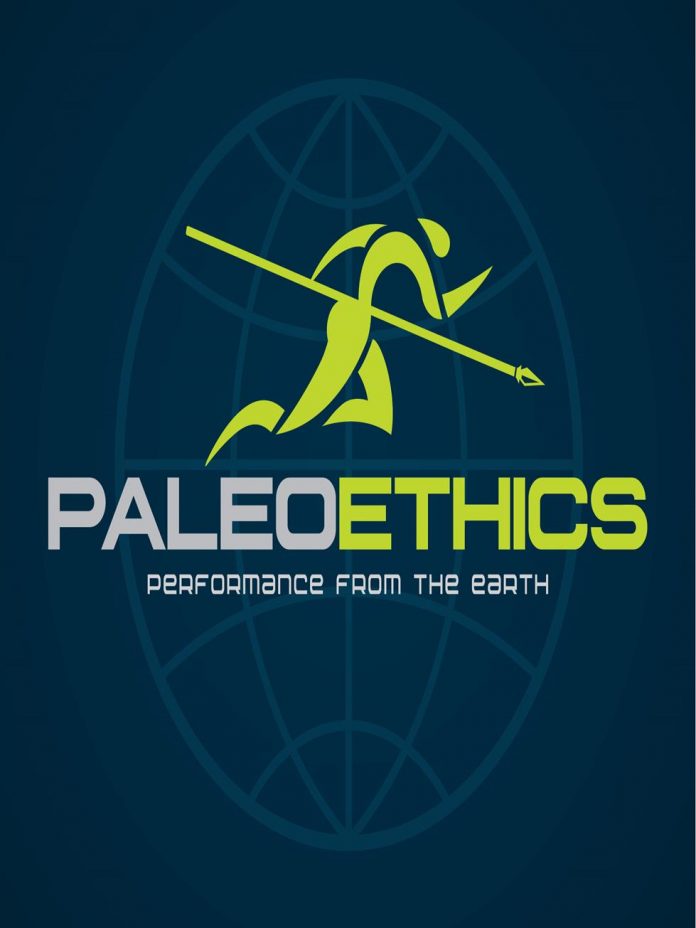According to Max Marion, president and CEO of Paleoethics, his personal experience of looking for better supplements inspired him to create products that would be non-GMO and organic, with no synthetics or fillers, and include only high-quality, premium ingredients. This idea brought Marion to Jon O’Farrell, an industry veteran with 20 years of experience, who is now vice-president of sales at Paleoethics.
“We wanted our products to completely follow the paleo diet, which to us means real ingredients that come from the Earth,” says Marion.
According to O’Farrell, there isn’t a paleo line as extensive as the Paleoethics one, which is also dairy- and soy-free, and doesn’t contain artificial flavours and sweeteners.
“Many sports nutrition brands on the market have fillers, allergens and they aren’t clean; they have sugar, or fake sugar, soy and all kinds of synthetics and artificial flavours,” says O’Farrell. “There is a hole in the market and we wanted to come up with something different and unique.”
O’Farrell says it has been challenging to find sales data for something that doesn’t exist yet. Currently, it is considered a sports nutrition sub-category, but with rising interest, this could be the beginning of a whole new category.
“Think back years ago when Vega launched vegan proteins, which did not exist at the time. They created a whole new category in the protein set. We are doing the same thing.”
Products
The seven Paleoethics products currently available on the market are Super Serum Protein, Ultimate Vegan Protein, Surge Preworkout, Rebuild Recover Post Workout, Vegan Recovery Matrix, Recovery Matrix and Super Greens.
This concept and brand of products for both meat-eaters and vegans has been in development for over two years now.
“A lot of vegan products on the market are not paleo, they have rice products in them,” says O’Farrell. “So we had to formulate something that was different to make that vegan option a highly digestible paleo option.”
According to O’Farrell, introducing vegan products gave the company an opportunity to cater to a specific demographic and to provide an alternative to those who eat meat.
“It’s a good idea to get a full, broad range of amino acids,” says Marion. “For example, vegan protein may be higher in certain amino acids whereas the beef one may be higher in others. By combining the two or alternating between the two, you’ll get a wider spectrum.”
Marion adds that many people take protein supplements from one source most of the time—milk, which is an allergen itself.
“All our proteins—whether the vegan ones or meat-sourced ones—are allergen-free. There is nothing in them that will cause discomfort or indigestion.”
Strategies
Paleoethics as a company refused to make any compromises on quality when it came to the formulations and they have complete faith in their supplements. Paleoethics is manufactured in a state-of-the-art pharmaceutical facility in Canada. This establishment is licensed for OTC pharmaceuticals, and is also NSF and NSF for sport certified. The facility is also licensed for natural, halal, kosher and organic products.
“We are very proud and confident of this product, and people can feel that through the branding and the formulas,” says Marion.
Paleoethics is also expanding internationally. With appeals for about 2,500 stores in Canada, the company also plans to work with approximately 5,500 stores in the U.S. Recently, Paleoethics partnered with a distributor and up to 300 stores in Europe. With their team of 15 employees, the company has set an aggressive sales target of $75 million within the first three years.
“We have a five-million-dollar marketing and advertising campaign that we’re executing over the next few months,” says O’Farrell. “That will include print, sponsored events and athlete endorsements, podcasts and radio, online targeting, and a sampling campaign in the North American and European markets.”
The company’s first sponsored athlete was Mark Sicard, who is also a valuable member of the Paleoethics team. As a vegan and a power lifter, Sicard has seen a considerable improvement in his overall health and energy levels when following the paleo diet—the idea that was incorporated into the Paleoethics vegan line.
“There are not many weight lifters who are vegetarian,” says Sicard. “I am probably the only one I know of.”
Sicard has broken two Canadian records and recently finished first within his age group and weight class at the Canadian Master’s Championship.
Giving Back
It is clear that good health and proper nutrition are central tenets to the Paleoethics philosophy. However, Paleoethics realizes that we don’t all have the same access to basic food, nutrition and health. With the goal of contributing to global food security, Paleoethics has established the Paleoethics Project. O’Farrell refers to the project as “the ethics portion of the business,” as the company has committed to investing a portion of its revenues into the Paleoethics Project.
When asked about the current activities of the Paleoethics Project, O’Farrell says that “[Paleoethics] is currently focused on a program in Guatemala where we’re helping them by providing tools, grain, livestock and education to help them grow their own foods and help them achieve full sustainability and independence.”
With the support of Paleoethics, small-scale farmers from 30 communities in the highlands of Guatemala will further their development of organic and biodynamic farming of grains and staples. Developed and sustainable farming practices help guarantee an increased level of food security in these communities. The scale of the project is quite impressive—over three years, more than 900 farmers will benefit from the Paleoethics Project.
“I think that our business model is just being a good and ethical company,” adds Marion. “We are not just giving money to these communities, we are allowing them to grow their own food, feed themselves and help them become completely self-sustaining.”
In addition to supporting rural farming communities in Guatemala, Paleoethics is giving back locally. Paleoethics has established itself as a community supporter by creating school breakfast programs in the towns and communities in which it operates.
Plans for the future
O’Farrell believes the biggest opportunity for Paleoethics today lies in the fact that the company is new and is still creating a track record that reflects its uniqueness.
“This is the first time the fitness world has seen a truly full paleo line of sport nutrition supplements,” adds Marion. “It’s a huge market and the reception has been amazing. We are looking forward to continue to develop this and offer new exciting products to this demographic.”
The next Paleoethics line of products will become available in the fall of 2016.








